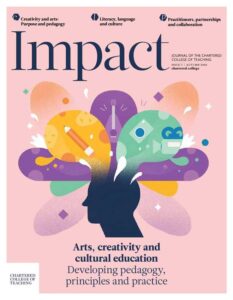We’ve recently finished analysing 6,000 responses from 14–18-year-old students. As part of a three-year research project, we asked students – through focus group interviews and a survey – about the arts in school: whether the arts subjects matter to them, what they learn and how they experience the teaching. One message came through consistently and powerfully: that students think their arts lessons and their arts teachers are different. This short article is about what those differences are and why they matter. These findings and our analysis of them come from the Tracking Arts Learning and Engagement Project (TALE), a study funded by Arts Council England and jointly conducted by the Royal Shakespeare Company (RSC), Tate and the University of Nottingham. The research took place in 30 secondary schools, 15 nominated by the RSC and 15 by Tate because of the long-term professional involvement of either a teacher or the school with the company/gallery. The case study schools ar
Join us or sign in now to view the rest of this page
You're viewing this site as a guest, which only allows you to view a limited amount of content.
To view this page and get access to all our resources, join the Chartered College of Teaching (it's free for trainee teachers and half price for ECTs) or log in if you're already a member.











